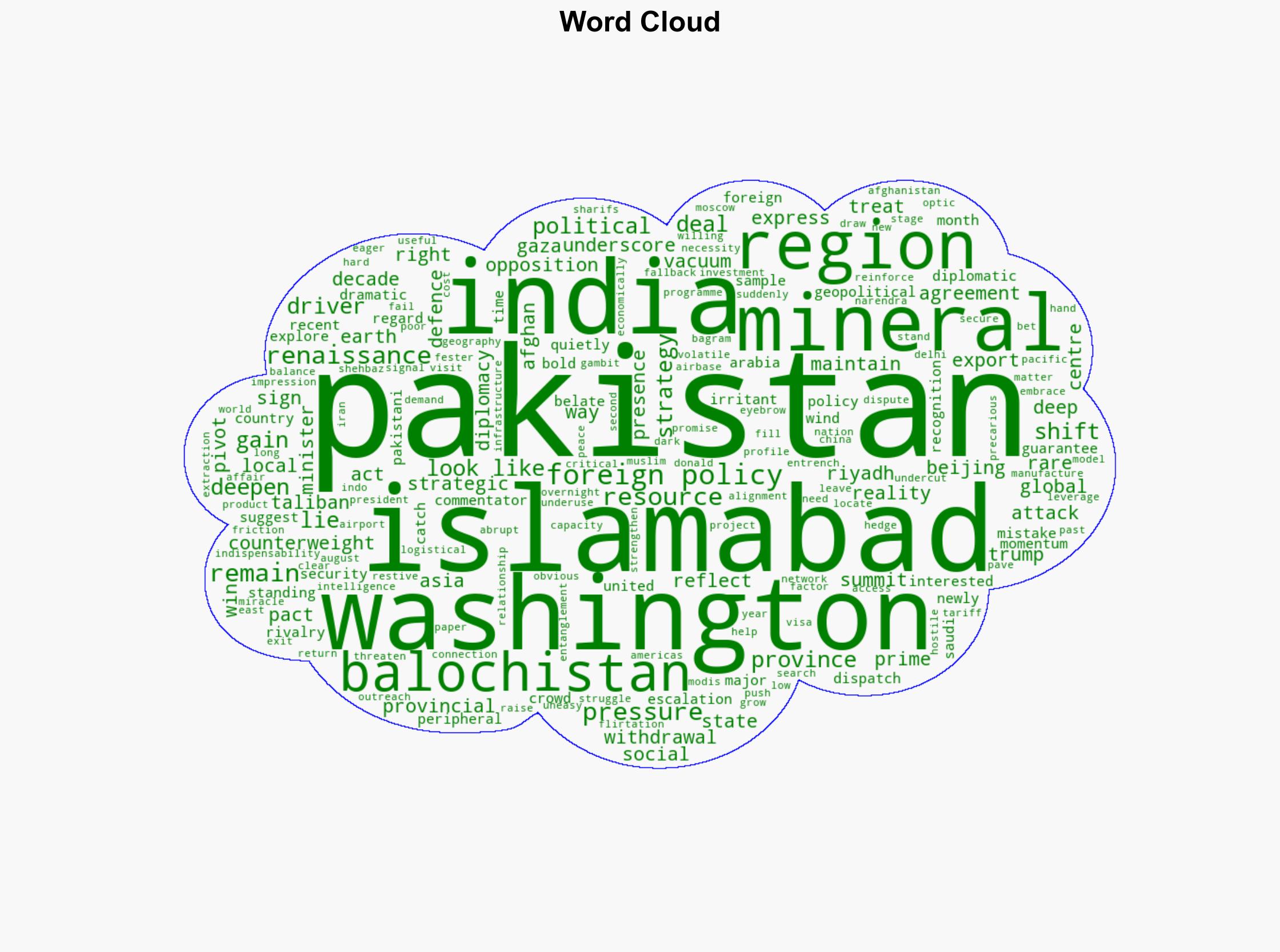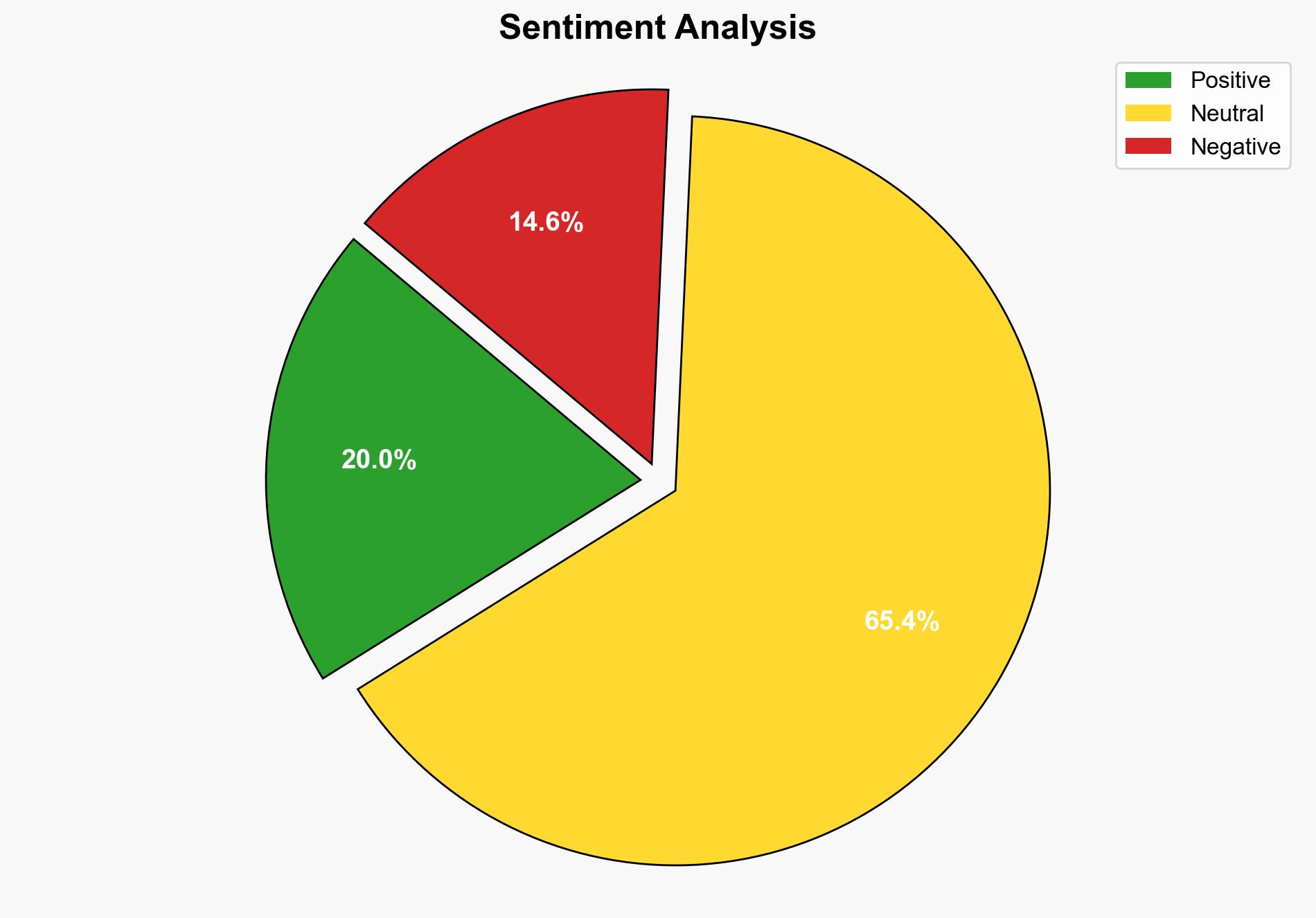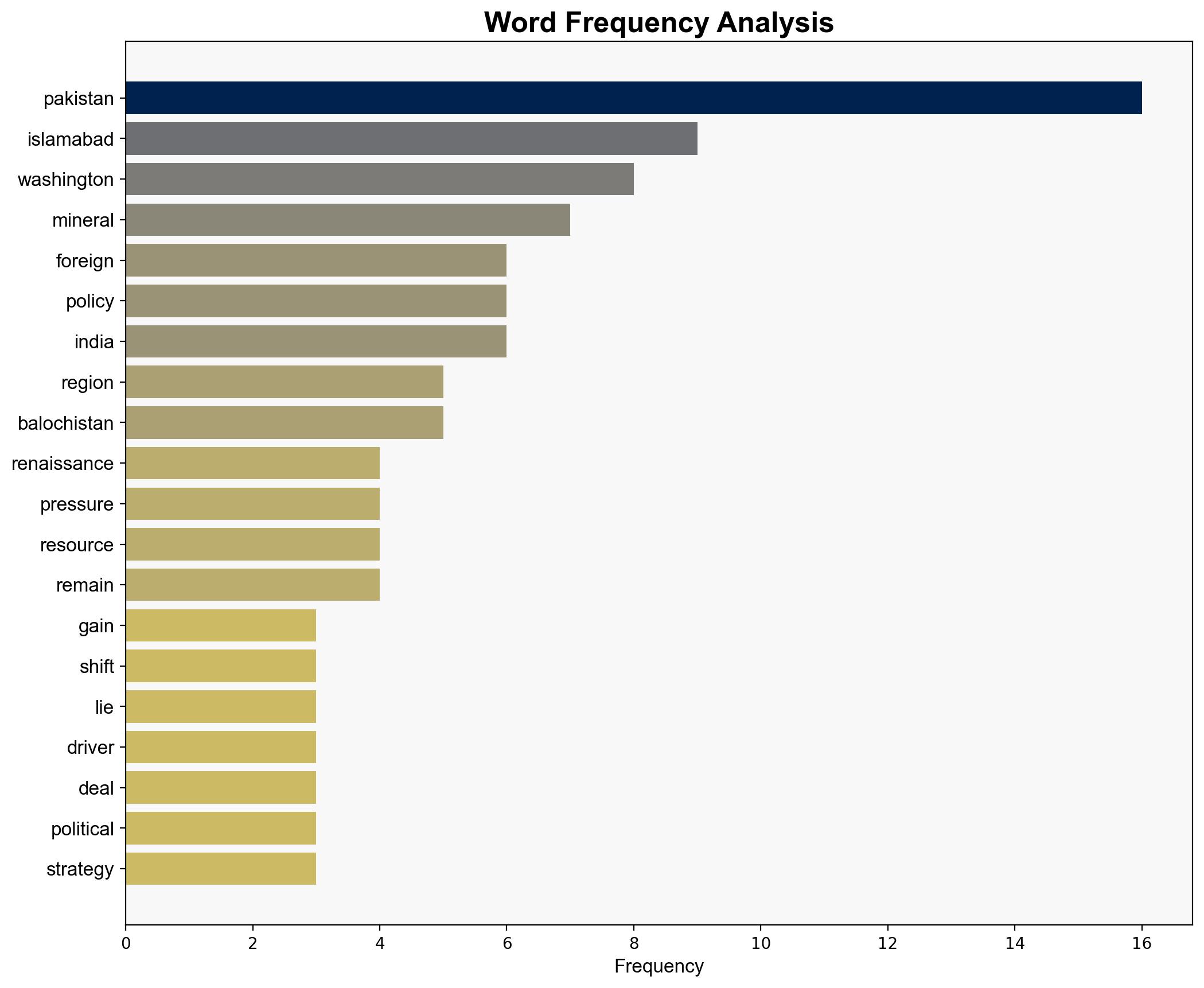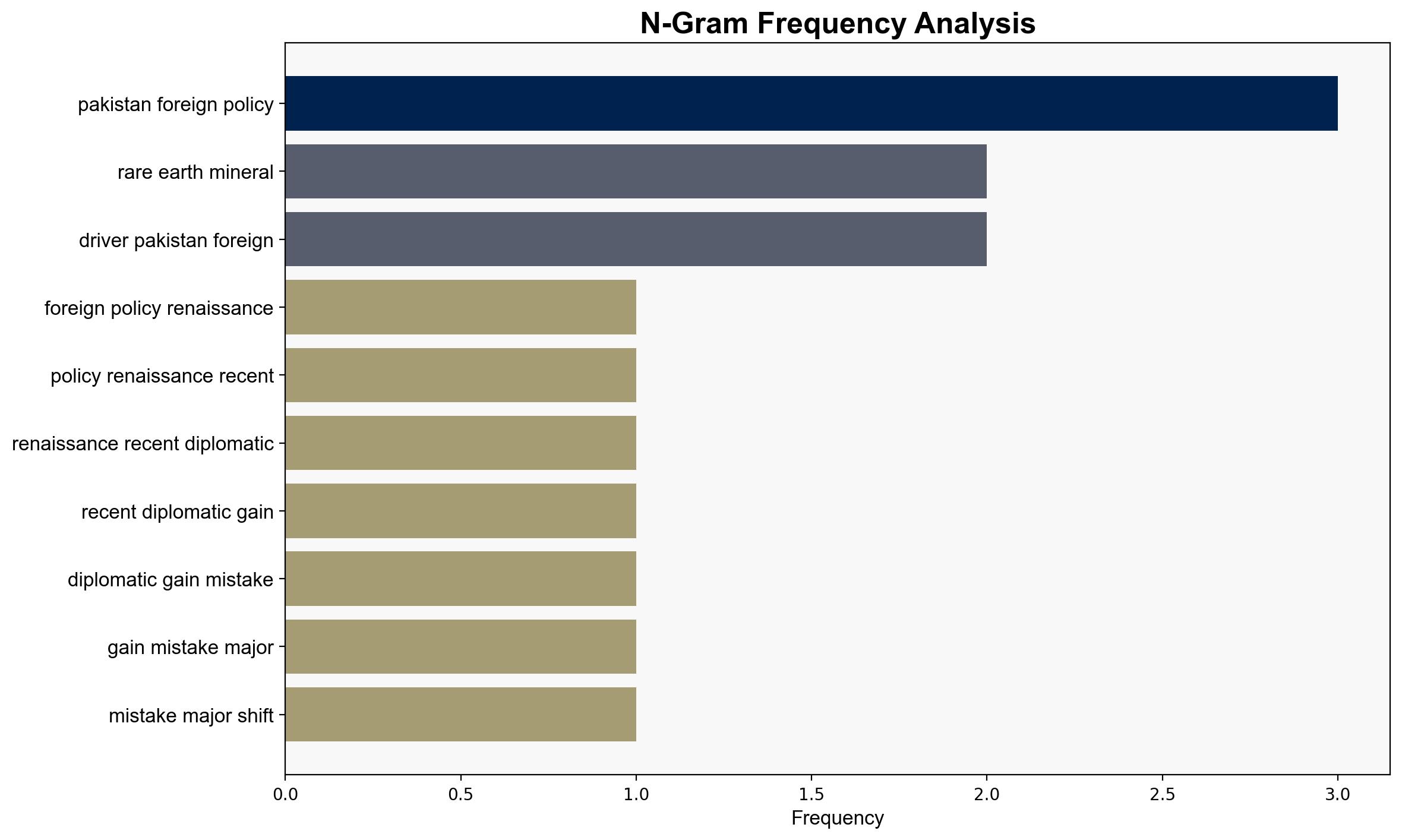A Pakistan foreign policy renaissance Not quite – Al Jazeera English
Published on: 2025-10-26
Intelligence Report: A Pakistan foreign policy renaissance Not quite – Al Jazeera English
1. BLUF (Bottom Line Up Front)
Pakistan’s recent foreign policy maneuvers, including defense agreements and mineral diplomacy, suggest a strategic repositioning rather than a renaissance. The hypothesis that Pakistan is leveraging geopolitical shifts for strategic gain is better supported. Confidence level: Moderate. Recommended action: Monitor Pakistan’s engagements with key global players, particularly the U.S. and Saudi Arabia, to assess shifts in regional power dynamics.
2. Competing Hypotheses
1. **Hypothesis A**: Pakistan is undergoing a genuine foreign policy renaissance, marked by strategic agreements and increased global standing.
2. **Hypothesis B**: Pakistan’s actions are reactive measures to geopolitical pressures and regional instability, rather than a proactive renaissance.
Using ACH 2.0, Hypothesis B is better supported by evidence such as the necessity-driven nature of Pakistan’s actions post-U.S. withdrawal from Afghanistan and the strategic use of mineral diplomacy to counterbalance India’s influence.
3. Key Assumptions and Red Flags
– **Assumptions**: Hypothesis A assumes Pakistan has newfound strategic autonomy and influence. Hypothesis B assumes Pakistan’s actions are primarily reactive.
– **Red Flags**: The portrayal of Pakistan’s foreign policy as a renaissance may overlook internal challenges and regional dependencies. The economic viability of mineral diplomacy is uncertain given Balochistan’s instability.
4. Implications and Strategic Risks
– **Geopolitical Risks**: Pakistan’s alignment with Saudi Arabia and outreach to the U.S. could strain relations with neighboring Iran and India.
– **Economic Risks**: Over-reliance on mineral exports from Balochistan may exacerbate local unrest and insurgency.
– **Security Risks**: Increased foreign involvement in Balochistan could fuel separatist sentiments and conflict.
5. Recommendations and Outlook
- Monitor Pakistan’s foreign policy developments for signs of strategic realignment or increased dependency on external powers.
- Engage in diplomatic dialogues to address potential regional tensions, especially with India and Iran.
- Scenario Projections:
- **Best Case**: Pakistan successfully balances relations with global powers, enhancing regional stability.
- **Worst Case**: Increased foreign involvement in Balochistan leads to heightened insurgency and regional conflict.
- **Most Likely**: Pakistan continues to navigate geopolitical pressures with mixed success, maintaining a precarious balance.
6. Key Individuals and Entities
– Shehbaz Sharif
– Narendra Modi
7. Thematic Tags
national security threats, regional focus, geopolitical strategy, mineral diplomacy





